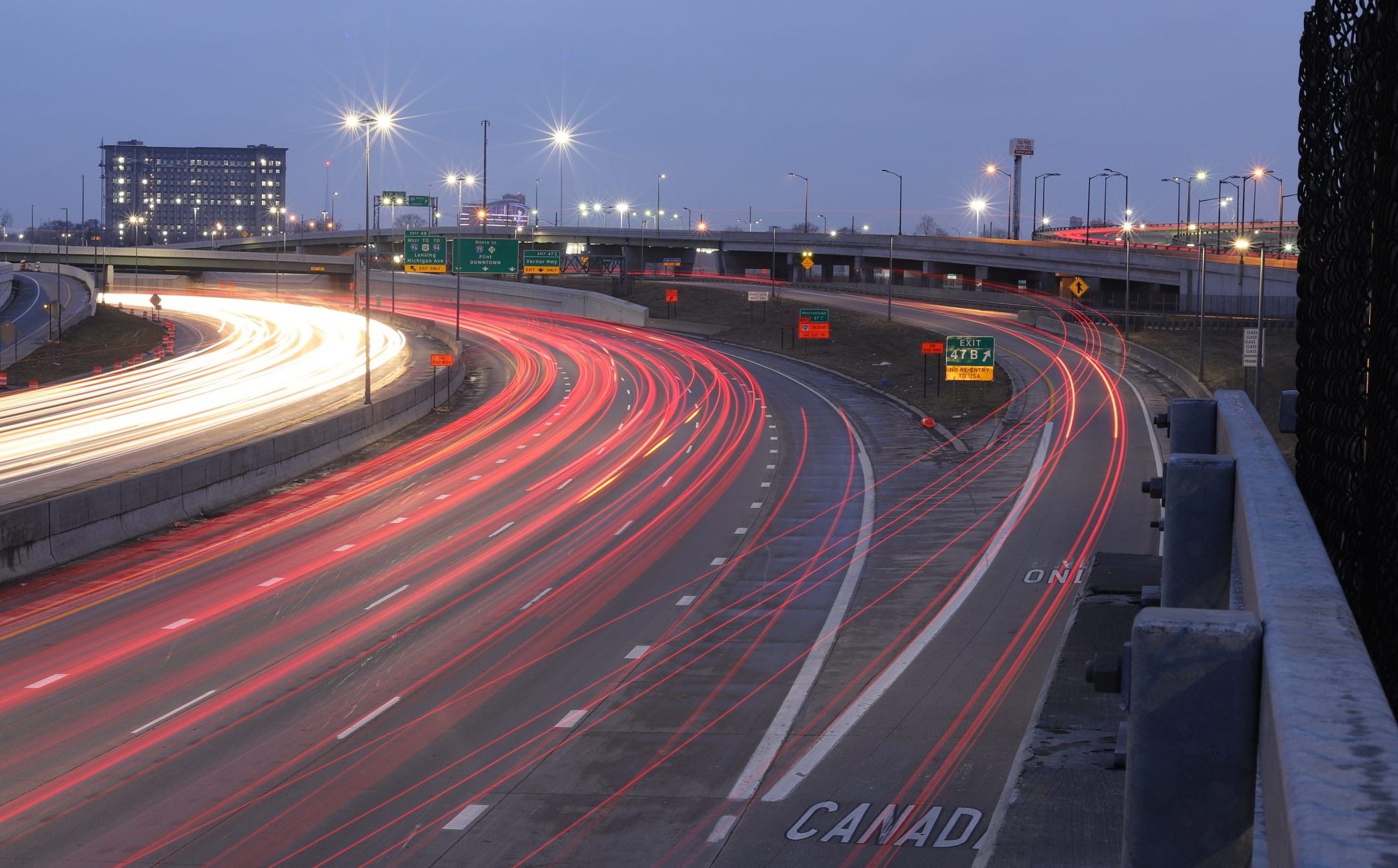It’s Not Infrastructure If It’s Just Roads
Michigan Governor Gretchen Whitmer hasn’t had an easy go of it. Running on the platform to “fix the damn roads,” following a “mixed bag” of economic policy she inherited from her Republican predecessor, Whitmer took office facing an often hostile Republican majority that has thus far blown off every proposal to do just that.
It is unclear whence exactly the opposition to fixing infrastructure comes, but a lot of it seems to come down to pitting the “tax-and-spend Democrats” against “Republicans as paragons of fiscal responsibility.” Never mind the previous administration’s propensity for corporate handouts– coffers are being emptied by Democrat spendthrifts!” In an echo of Trumpian politics in Washington, where the line between fact and fiction are blurred, many Republicans even seem wont to echo their constituents’ conspiracy theories that “there is enough money– it’s just being misspent!”
“Audit the books!” Facebook commenters scream. “Figure out where the money is going!”
(Narrator voice: As it turns out, the books are audited– every year.)
Others more astutely point out that there are multiple ways to solve the infrastructure budget issue.
So, the Governor proposes what in Mitch McConnellian terms might be called a nuclear option– that is frankly, in the opinion of the Handbuilt editorial board, a less-than-ideal one.
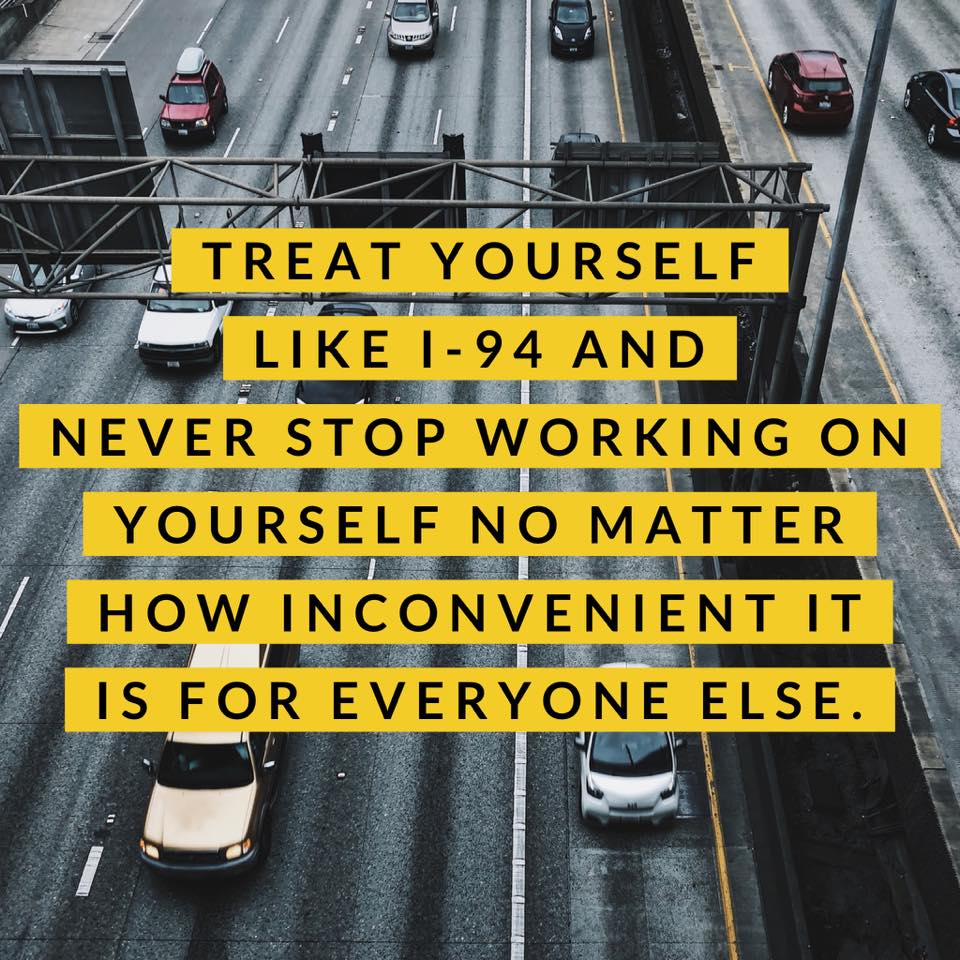
ROAD FUNDING SOLUTIONS PROPOSED THUS FAR
Whitmer ran on the platform of “fixing the dyamn roads” (the ‘y’ added for emphasis on the rising Midwestern ‘a’). An obstinate Republican legislature, headed by, among others, a guy who once tried to bring a loaded, illegal handgun onto a commercial flight but got off because his sacred Secum-memint Rights, his assertion that it was an “unintentional” mistake, or perhaps just, uh, “#crimingwhilewhite,” has thus far entertained few of her ideas. An interesting aside in the conversation about transparency in spending, Chatfield raised some eyebrows when he decided to anonymize all salary data publicly available without a FOIA– in an unindexed PDF, no less. (Chatfield’s office had not responded for comment by the time of publication).
To get a better perspective on this subject, I spoke to former Lieutenant Governor Brian Calley, who currently serves as the president of the Michigan Small Business Association. Calley, a comparatively mild-mannered pragmatist far more in line with his affiliated Governor Rick Snyder than with the likes of the stereotype of the current vitriolic Republican politician, lost the primary to former Attorney General Bill Schuette, who more closely fit the latter category.
On transit: “The [Michigan Small Business] Association hasn’t been for or against, we’ve focused on how do you repair or maintain the system today,” he told me. This, he said, is partially a problem with Michigan’s climate, which involves far more freeze-thaw cycles than states farther south– or farther north. But it’s also a problem with the fact that road funding structures and systems are put together over a generational timeline. The ship of bureaucracy, especially when it comes to funding such an expansive system, takes a long time to turn.
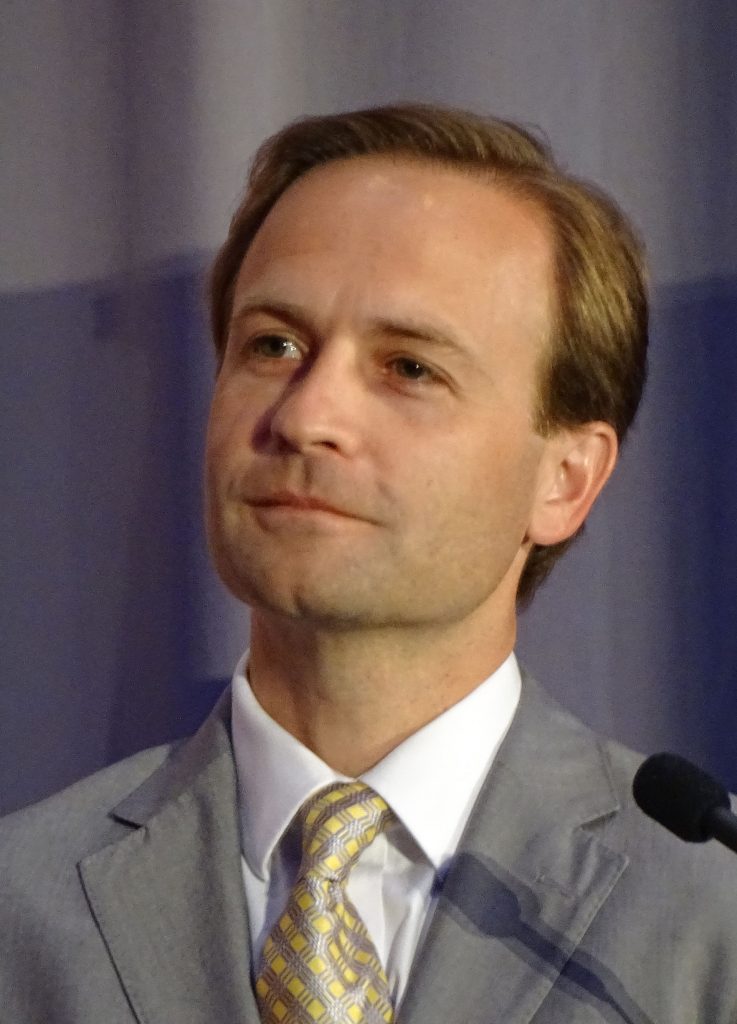
This might well be what Charles Lindblom was referring to in his 1959 book, The Science of Muddling Through. Lindblom basically makes the case that change stems not from implementing comprehensive strategic planning, but from the competing interests of multiple empowered stakeholders who effect an incremental evolution of the system. (This sentiment was echoed by Commerce Township supervisor David Scott, with whom I spoke for a yet-unfinished article on the urban-rural divide).
It’s a useful characterization. But it’s not very interesting to think about how to get things done.
Indeed, many of the systems for funding infrastructure are a hodgepodge of federal funding, state funding, and local funding. Some of these systems go back to the 1950’s. The gas tax goes back to the 1930’s. None of these systems work particularly well, indicated by the fact that our transportation infrastructure kind of sucks.
To the uninitiated (a.k.a. normal people who leave their house and do things other than reading about how to finance capital purchases of buses), here’s a summary of a few strategies for infrastructure funding.
GAS TAX INCREASE
- Whitmer originally proposed a major gas tax increase. Proponents argue that gas tax is a good way to pass along costs to the people who do the most driving. Opponents argue that gas taxes are regressive because they disproportionately penalize people who can’t afford more fuel-efficient cars. An extremely vocal minority in NUMTOT agrees with the latter point. They both have a point, sort of. But it’s a little bit more complicated than that. The simplified explanation? Michigan spends less than most other states on road infrastructure. Southeast Michigan’s sprawling low density combined with a largely vacant Detroit proper is terrible for road funding formulae. Assuming it doesn’t save you a cent in car repairs, Bridge Magazine estimated that Whitmer’s proposed gas tax increase would run drivers an average of $650 per year. But having personally blown out three tires on potholes and having once cracked a wheel from a pothole, I can tell you that that $650 sounds pretty affordable. Beyond that, I also think that we need, well, less road surface area (induced demand, anyone?). While most Republicans scoffed at the massive gas tax hike proposed by Whitmer, former Lieutenant Governor Brian Calley and the Small Business Association support a gas tax hike as a user fee to improve roads. It is unclear why there was no debate about a gas tax lower than what was originally proposed. On the flip side, oil is super cheap right now, so a very high gas tax wouldn’t have much net year-over-year impact to consumers.
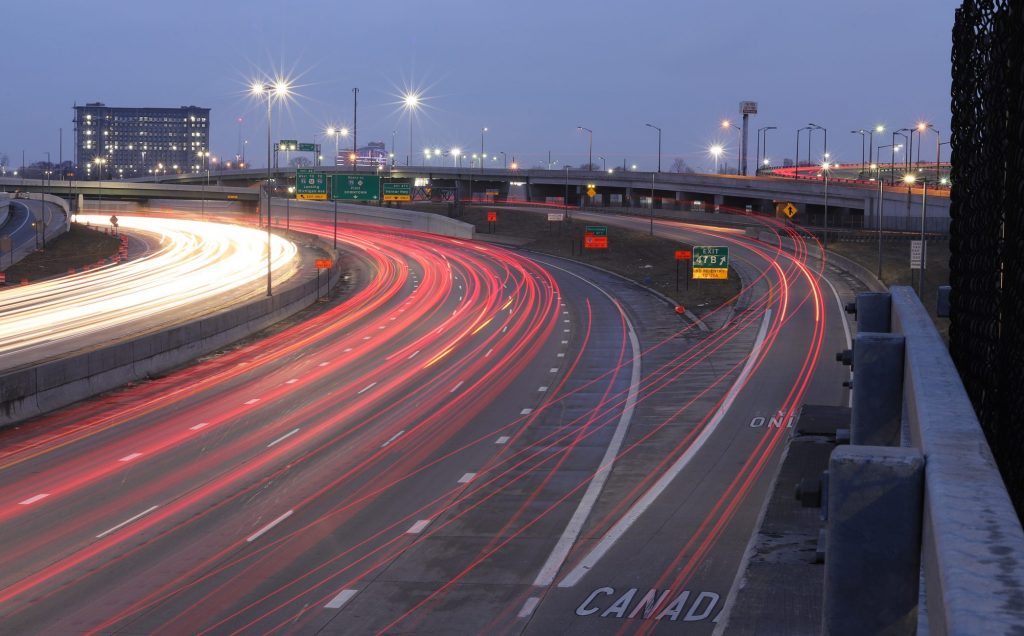
TOLLING
- Tolling is the “easiest” alternative to a straight-up VMT tax. This is thoroughly unpopular in a region where people think that public buses are a UN AGENDA 21 GLOBALIST CONSPIRACY (as a man on Twitter once ranted to me). I once did some work for a company where the one guy refused to get an EZPass because he didn’t want the government to know where he was going. (As an aside, he has since been indicted in federal court for investment fraud. I daresay that the government, uh, did figure out where he was going). The problem with tolling– apart from Michiganders’ belief that free roads are an inalienable right endowed by their Creator- is that it requires the construction of things like toll plazas and toll collection things along onramps and offramps. Illinois, the poster child for tax-and-spend Democrat Big Gubmint, pioneered high-speed tolling through the IPASS system years before EZPass in Ohio and Pennsylvania caught on. To be clear, it is very expensive to live in Chicagoland. But the roads are smooth! These are tradeoffs. Michigans Senate recently authorized a study of tolling. People will not be happy.
VEHICLE MILES TRAVELED (VMT) TAX
- This is difficult to implement as it would require real-time tracking and billing of drivers. But it solves the problem of EV’s avoiding the gas tax. Support has been tepid owing to privacy concerns. But Oregon is giving it a shot. The best shot at VMT would be to integrate wireless tracking into cars via the OBD port (not the ODB port, that’s quite different). This would be a good– and accurate- source of revenue collection. But it would be expensive and hard to implement. It would also involve, well, plugging in people’s personal info to Big Gubmint. This approach has not been widely promoted in Michigan.
INCREASING USER FEES (OTHER THAN THE GAS TAX)
- Erstwhile Republican governor Rick Snyder increased registration and other fees to fund road infrastructure. Of course, critics maintain that the state wouldn’t have needed to hike fees if the Snyder administration hadn’t facilitated the transfer of so much wealth to large corporations by cutting corporate tax rates and issuing corporate subsidies. This is evident in General Motors’ recent announcement of how much it has banked in tax credits. $2 billion would build a heck of a lot of trackage for that high-speed rail between Detroit and Ann Arbor that I keep not hearing about! In this regard, hefty increases in user fees for things like registration are somewhat regressive.
REALLOCATION OF MONEY FROM THE GENERAL FUND
- Republicans proposed moving $400 million from the general fund to allocate to roads. $400 million is short of the billions of dollars Whitmer says are needed to bring the infrastructure back into good shape. It would also threaten to shift funding away from other things that, Brian Calley pointed out, Michiganders overwhelmingly favor, like school funding. Stopgap measures almost never solve structural issues.
BOND ISSUE
- This is the latest idea from Governor Whitmer. It is the one she can perhaps most easily pursue within the purview of executive priority. The reason why it’s the worst of any of these? It is a bandaid to a structural problem– sticking a finger in a dike while the sea level is rising. Expanding or maintaining the amount of paved area forever and ever does not actually improve mobility. It does not reduce costs of maintenance, and it does not reduce congestion. And, as I mentioned in my piece critiquing Duggan’s new demolition bond issue, this would essentially just be borrowing against the future to refinance something with dubious value. Calley and others oppose this not because of the value question but because it does not provide money for local roads, only trunkline roads.
OVERBUILT SPRAWL DRIVES UP COSTS PER CAPITA
The trunkline versus local road issue is an important one from an urban planning perspective because local infrastructure in sprawling, low-density suburbs was purpose-built, or, more accurately, purpose-overbuilt. In other words, these cities consciously chose to embrace a high ratio of paved area to population, and now they’re paying the price. We can certainly debate the finer points. But Metro Detroit’s population is stagnant and the state’s population has been stagnant for decades.
Senate Majority Leader Mike Shirkey’s office writes:
“Senator Shirkey is focused on material, incremental increases in road funding. The Senate recently voted to authorize funding for a study to determine viability of tolling in Michigan. HOV lanes have been added to road improvement projects near Ann Arbor; and, there is a bill in the House, HB 5229, that would authorize local communities to seek local funding for regional transit projects.”
Tolling would be a great, but unpopular step. They’re not transit. HOV lanes also aren’t transit, but they, too, would be a valuable step. And HB5229 is something TRU and Handbuilt City are actively involved in promoting.
SO, WHAT ABOUT TRANSIT CONCURRENCY?
The idea of “concurrency” requires one thing to be done while another thing is done. Here’s an idea. Attach terms to any spending increase that requires concurrent increases in transit spending of some number of cents for every dollar of new road spending. Ideally, this would be a dollar, because I’m a raging communist like that, but I’ll settle for less.
A bus– or a train, for that matter- carrying 40 people means 40 fewer cars on the road. Fewer cars on the road means less wear. Less wear means lower maintenance costs. The same is true with bike lanes, which could well be included, too.
Of course, critics abound.“Oh, the city of Detroit spent all of this money on bike lanes that no one uses,” some Keith Crain type laments. “Why, when I drove to work at 5am from my Grosse Pointe mansion, I didn’t see one person out!”
This comment avoids the fact that when you are reducing road width to add bike lanes, you’re also reducing the amount of wear and tear. This is especially true with heavyweight trucks that destroy roads.
This is obviously pretty straightforward logic. But it’s logic that has eluded policymakers on both sides of the aisle.
A PARTISAN ISSUE? OR NOT?
Is it a Republican versus Democrat thing? I don’t think so. Just when I thought I couldn’t be surprised at anything anymore, at New Partners for Smart Growth in 2018, I listened, enraptured, as a Trump-loving, Utah Mormon Republican legislator addressed a jam-packed banquet hall about how much he loved his state’s public transit system. The state even just announced a proposal to explore a statewide rail network. My conservative Republican father used to take the train to work in Harrisburg every day for many years. He later commuted the opposite way to Philly.
Indeed, it might well be a Michigan thing.
Calley weighed in on this specific question:
“There’s a history– or a culture- of independent travel in our state,” he mused. “People don’t think of that way, but it’s a really powerful force. Being the original inventors of the automobile, the concept ofw individual travel is something that for many generations has been a powerful factor in [effectively opposing] both the development of and the use of mass transit.”
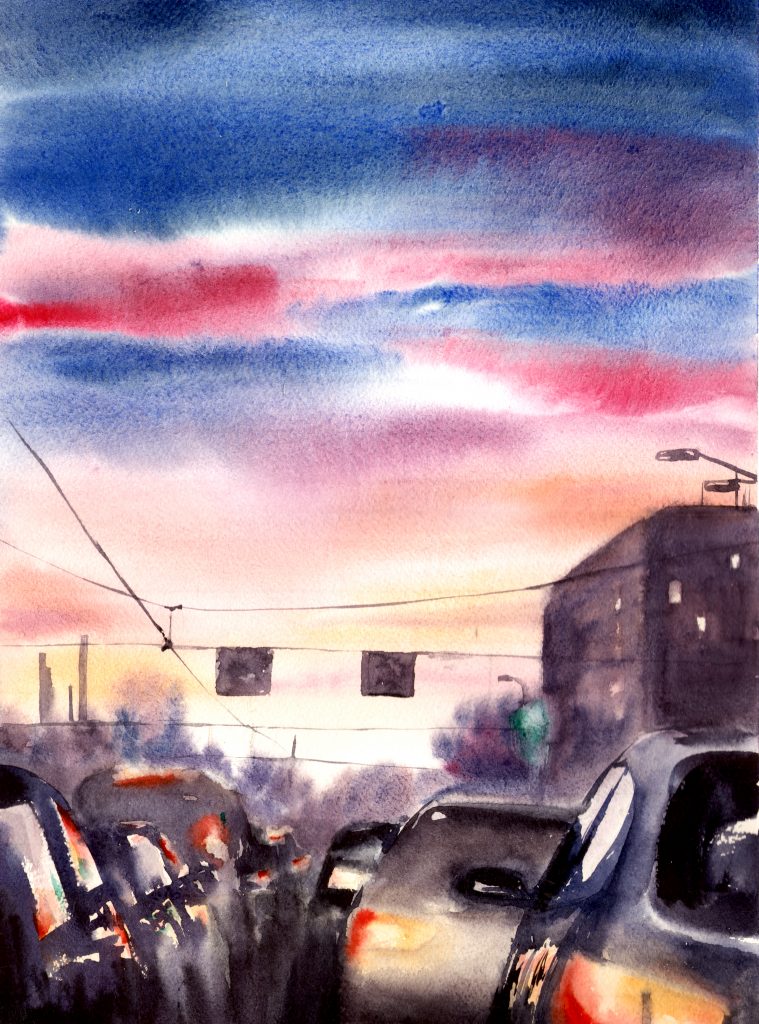
Such support is especially elusive in a state that worships at the shrine of the automobile– even as the struggling auto industry has failed to deliver any growth to the metro area over the past half century.
Calley was circumspect and did not indicate that members of his circle are clamoring for transit expansion, but nor did he shoot it down. He understands why transit is a value proposition, citing figures that show that teenagers are waiting longer to get licenses and many are far less interested than previous generations to buy a car.
But he says that it’s a chicken-or-the-egg argument, that, until someone makes a good, clear case for it that can bring together a disparate array of stakeholders, “the idea of investing in a system that is not well-utilized– or is not gonna be well-utilized- policymakers won’t see it as worth putting money into, it’s kind of a circular argument.”
“Literally every large city around the world I visit, I use the transit system,” former Lieutenant Governor Brian Calley told us. “Most cases it’s the subway, and they’re usually quite easy and efficient to use– and quite affordable compared to a [taxi]… If people believed that you had that type of demand capacity [in Michigan], it’d be a whole different conversation.”
Is transit concurrency an option for funding? Could it alleviate pressure on our infrastructure? A lot of this depends on making the case for it.
“Could it reduce congestion? I’m just not qualified to rule on that,” he said, but also added that there’s no reason why the discussion can’t involve “We can’t end the debate. We have no excuse to stop working on it,” he said.
(We contacted the office of Matt Maddock but did not receive a response after numerous inquiries. Follow Brian Calley on Twitter. This article is part of a series on mobility and the Business Case for Transit.)

